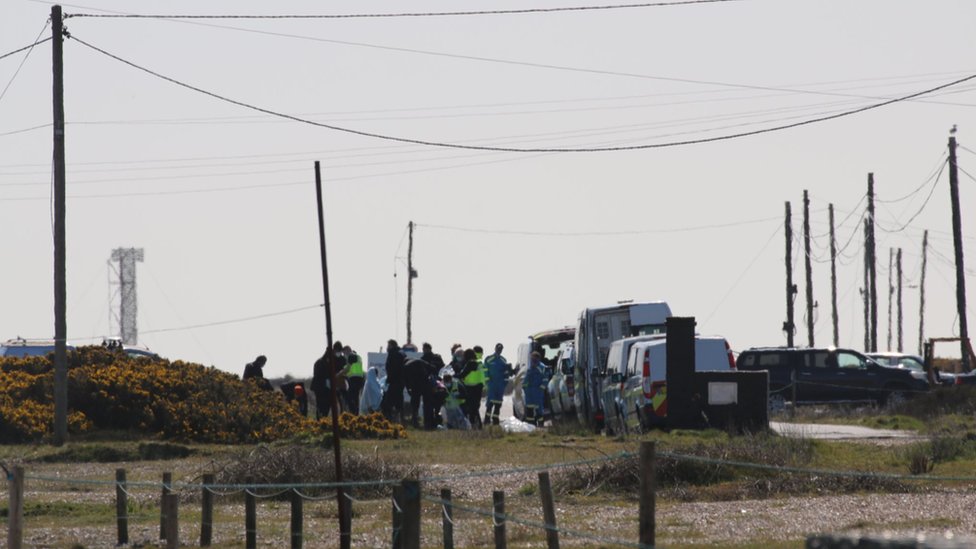Channel crossings: June sees record number of migrants
- Published
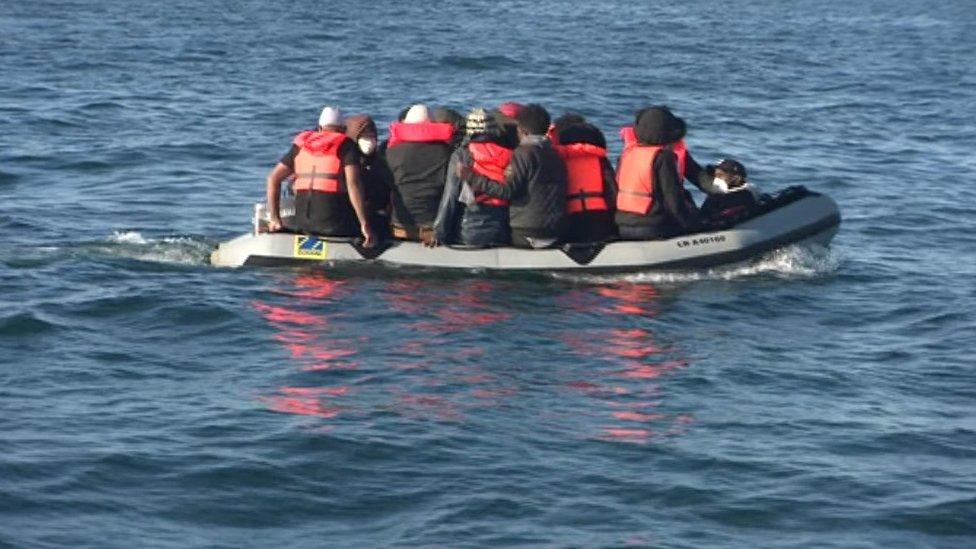
This group of Channel migrants was filmed by a BBC crew earlier this month
More than 2,000 migrants have crossed the Channel on small boats in June, setting a new record.
The previous highest monthly total was set in September 2020, when 1,951 people made the crossing.
Conservative MP Natalie Elphicke said the dangerous crossings would not end until migrants and traffickers were taught "they can't break into Britain".
But Bridget Chapman of Kent Refugee Action Network said: "We have a duty to accept people arriving on our shores."
UK authorities dealt with 107 people in four boats on Monday, while the French intercepted two vessels carrying 40 people.
The Home Office says another 150 people in four boats arrived on Tuesday.
A Home Office spokesperson insisted the government was "cracking down" on the "despicable" gangs behind people smuggling.
It said its New Plan for Immigration would "break the business model of these heinous people".
Ms Chapman said the focus should be on providing a safe passage for asylum-seekers who were arriving "traumatised".
She said: "We have a duty to accept people arriving on our shores. But nobody should be making a dangerous journey.
"We have seen deaths and we will see more deaths."
She said the "chaotic patrolling of our huge coastline" should end and called instead for the introduction of a humanitarian visa.
"This would allow asylum seekers to make a safe passage - they could just get on a plane, ferry or train and we would know exactly who is arriving," she said.
But Conservative MP for Dover Natalie Elphicke said tougher action was needed.
She welcomed steps to stop "thousands and thousands of migrants being brought into Dover as they are right now."
She said: "These dangerous crossings will only come to end when migrants and traffickers alike know that they can't break into Britain in this way.
"That means doing much more to stop the boats leaving France in the first place, turning boats around wherever they are in the Channel, taking them back to France, and returning illegal entrants."

Follow BBC South East on Facebook, external, on Twitter, external, and on Instagram, external. Send your story ideas to southeasttoday@bbc.co.uk.
Related topics
- Published7 June 2021
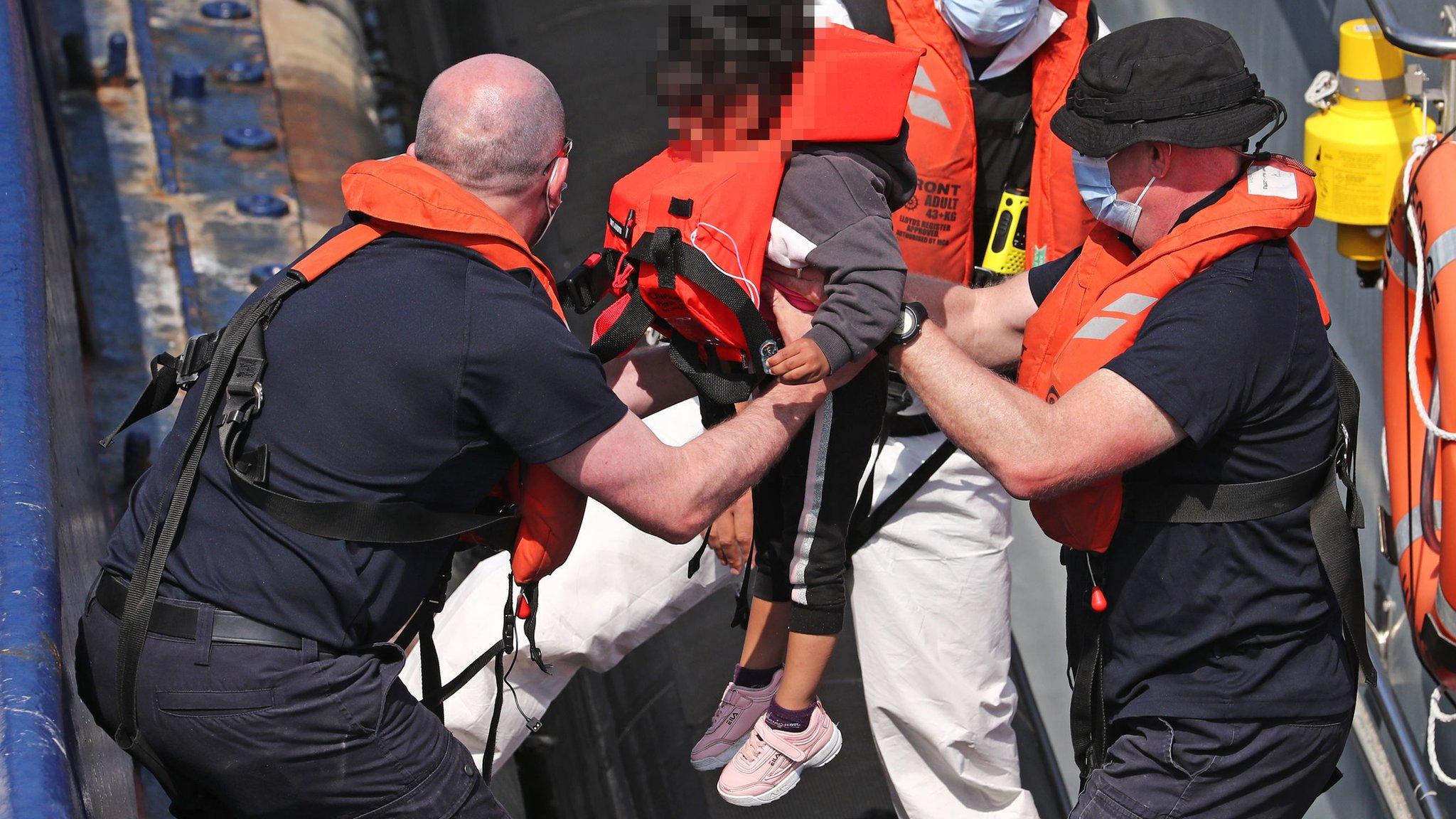
- Published6 June 2021
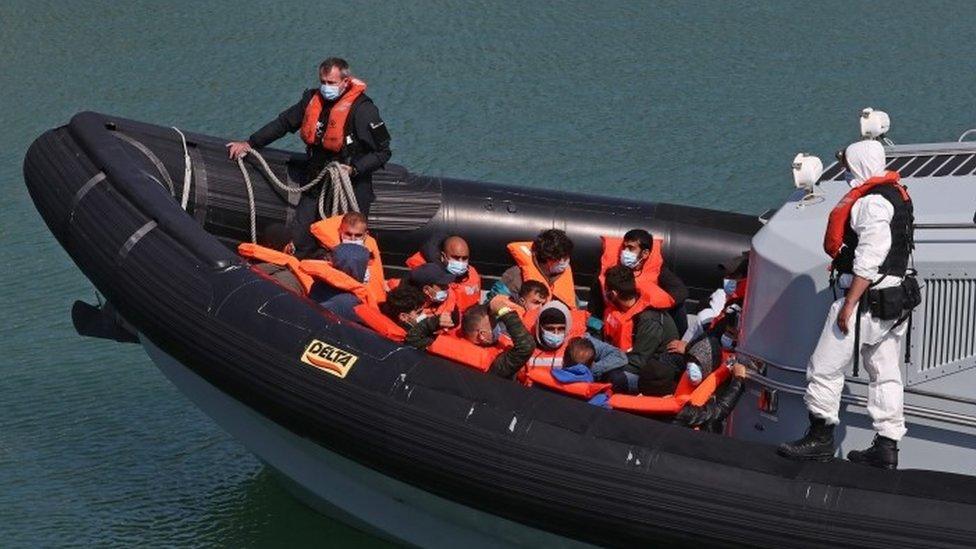
- Published5 June 2021
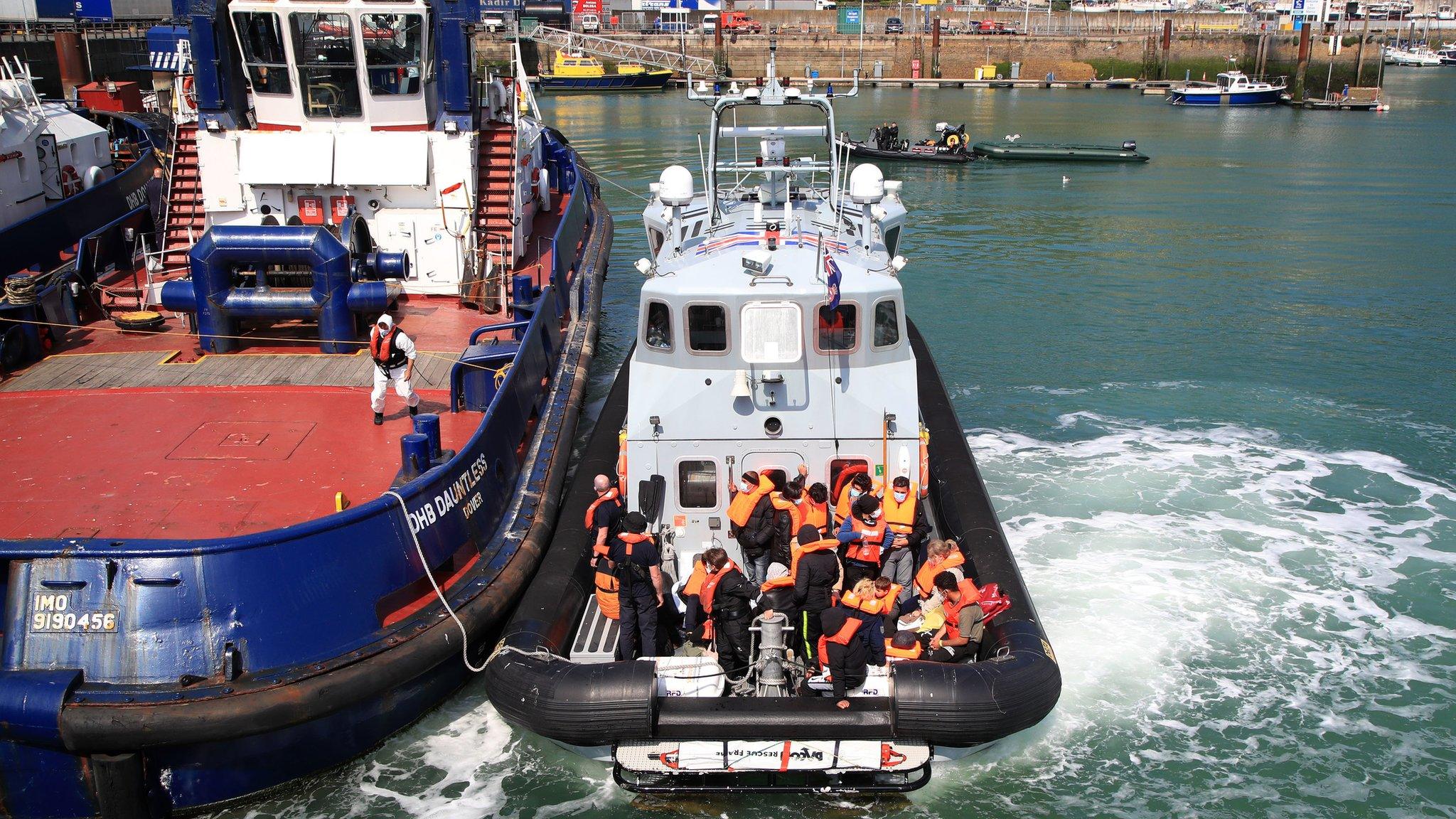
- Published1 June 2021

- Published14 May 2021
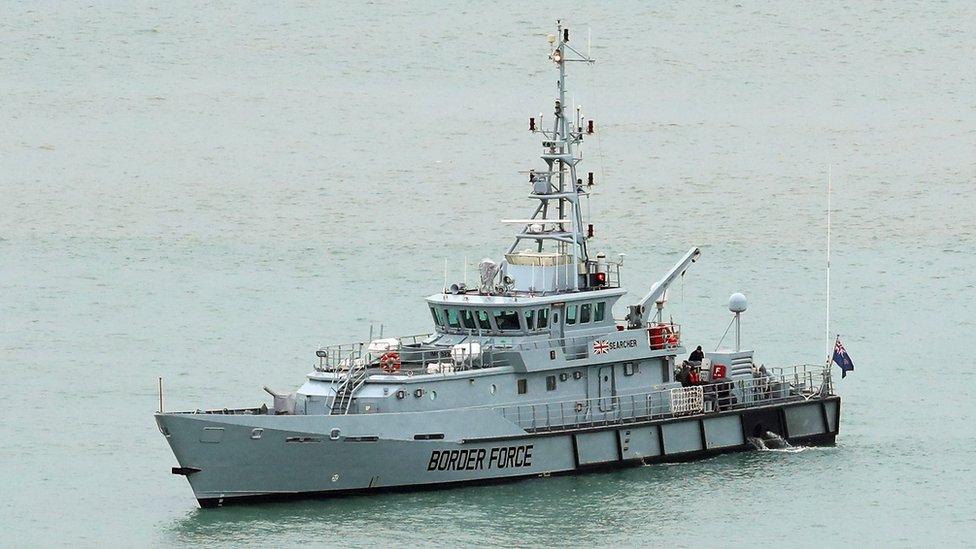
- Published3 May 2021
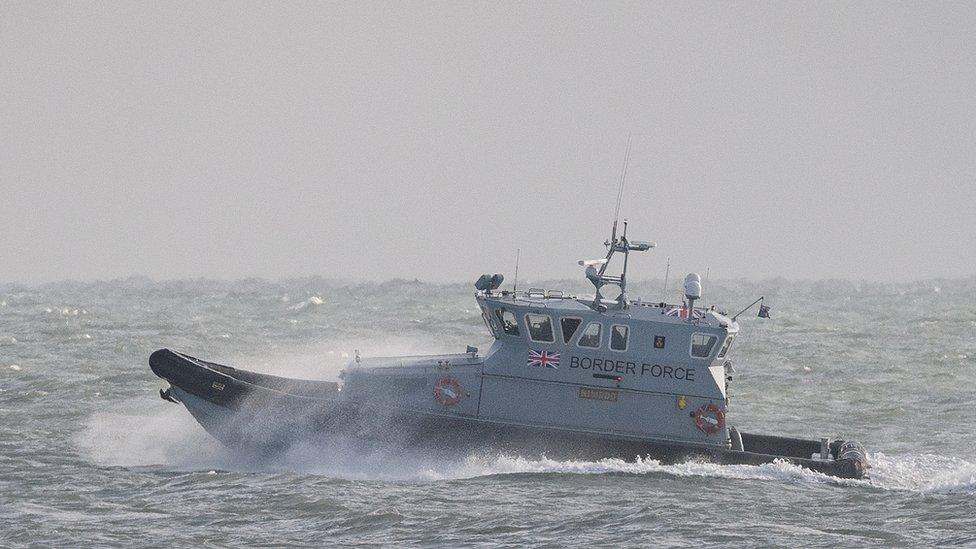
- Published26 March 2021
